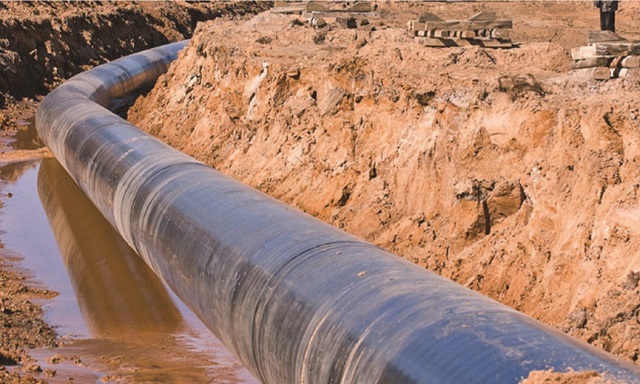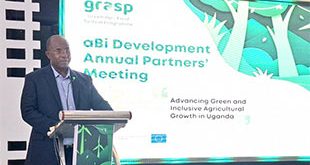
Kampala, Uganda | THE INDEPENDENT | Compensation for persons affected by the East African Crude Oil Pipeline (EACOP) project may cost up to 65 billion shillings.
The estimate has been given by Robert Kasande, the permanent secretary Ministry of Energy and Mineral Development hours after the approval of the Resettlement Action Plan-RAP for the East African Crude Oil Pipeline (EACOP) project.
The approved RAP is specific to the Uganda section of the project and paves way for the implementation of the land acquisition and resettlement process which involves completing the acquisition of land and securing the rights to the land, including payment of compensation and resettlement of affected households.
Kasande says the entire process is so far moving in the right direction and without giving the exact figure, Kasande highlighted that the approved resettlement action plan for the project may cost up to USD 18 million (64.75 billion shillings).
“I want to assure Ugandans that government has taken the right steps, the process of compensation has just begun and we know the company will display the valuation reports to the residents before payment starts,” the permanent secretary told Uganda Radio Network.
Kasande added that project-affected persons who will be satisfied with the value tagged on their property will be paid off while those who think that their property would have been undervalued will be allowed to appeal.
His remarks came at a time when civil society organizations are wondering whether the due process has been followed before the government eventually approved the Resettlement Action Plan on Friday evening.
Dickens Kamugisha, the Executive Director at Africa Institute for Energy Governance (AFIEGO) notes that they were shocked to learn about the approval yet up to now the project affected persons are still green about the process.
Kamugisha says for about three years, EACOP has been carrying out the valuation of property in affected areas. However, he adds none of the project-affected persons knows the rate which is being used.
“The law requires that every year, the district councils pass valuation rates in consultation from the residents,” says Kamugisha. “We have been to the ten districts affected by the pipeline, this wasn’t done. The residents there are in dark, they don’t know what they will receive.”
He adds: “To make matters worse, during the valuation process, EACOP did not give residents copies of the valuation forms so they even don’t know how much of their land is needed for the project.”
James Muhindo, the National Coordinator of the Civil Society Coalition on Oil and Gas-CSCO also raised a concern on the compensation timelines. According to him, if the plan doesn’t have fixed time for compensation, the affected persons might suffer.
“Before approving the plan, the government had to put deadlines on each aspect,” says Muhindo. “There have been tendencies of delayed compensation. This greatly affects PAPs who opt for land-for-land compensation.”
Several sources from EACOP indicate that the company intends to start compensation by July this year.
The pipeline will run for 296 km in Uganda from Kabaale to the Uganda-Tanzania border traversing 10 districts covering 171 villages, 2,321 acres of land.
According to the RAP, a total of 3,792 people will be affected by the project. Of this, 3,096 people have land interests while 696 hold licenses with structures, crops, or trees growing on land owned by other persons.
A total of 1,376 structures owned by residents will be affected, including 219 residential dwelling structures, 1,157 other structures such as grain stores, livestock kraals, latrines, and 33 incomplete structures.
*****
URN
 The Independent Uganda: You get the Truth we Pay the Price
The Independent Uganda: You get the Truth we Pay the Price



